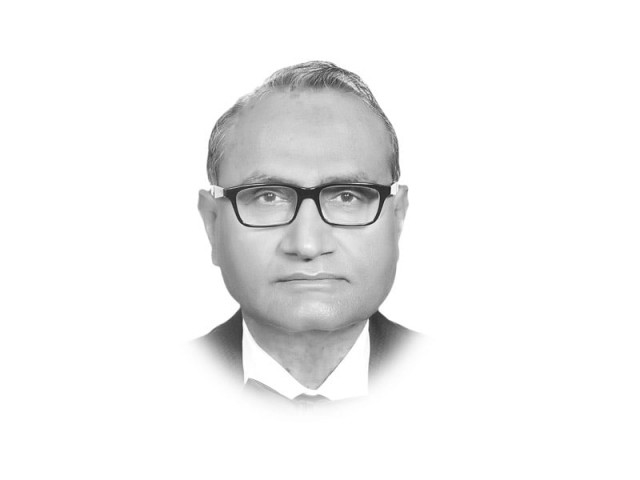Dar’s dollar Dolby
The external sector is the worst performer in the PML-N’s handling of the economy

The writer is a senior political economist based in Islamabad
The latest turmoil in the world financial markets comes on the heels of falling commodity prices, particularly the price of oil, and has been fanned by the Chinese efforts to respond, in their own time, to the long-standing concerns of the United States and Europe about China’s unrealistic exchange rate. Stocks crumbled earlier, as investors smelt the beginning of an inward drive towards Chinese consumers and infrastructure development. With tremors being felt in the largest economy of the world, the impact cannot but be global. China has replaced the United States, and the world has replaced Europe in the old saying: when America sneezes, Europe catches a cold. A round of competitive devaluations has followed the Chinese devaluation.

In this worldwide disturbance, Finance Minister Ishaq Dar’s jihad against a strong dollar suffered a reverse of 2.4 per cent in a single day. Luckily, he is too busy installing an ombudsperson for the MQM, giving the State Bank of Pakistan (SBP) an opportunity to exercise some ‘autonomy’, mainly through moral persuasion and exhorting banks and money changers to do what they cannot, and will not. It has not gone beyond bragging about the strong fundamentals, which are good for the economy. A policy of piling up dollars through begging, borrowing and stealing rather than through earnings from exports is a recipe for disaster. The first month of the new fiscal year witnessed a 17 per cent decline in exports. This was a continuation of the negative trend set off in the previous fiscal year, when a decline of around five per cent was posted.
Mr Dar’s jihadist fervour for a stronger rupee added insult to the injuries of expensive yet discontinuous energy supply and the uncertainties imposed by the ongoing war on terror. As a matter of fact, the hard-won margin of preference under the GSP Plus was considerably eroded by the failure to have a sensible exchange rate policy. The textile group, contributing more than half of the exports and the main beneficiary of the GSP Plus, suffered an absolute decline, from $13.7 billion in 2013-14 to $13.5 billion in 2014-15. Clearly, there was export diversion rather than creation.
The external sector is the worst performer in the PML-N’s handling of the economy. The share of exports in Pakistan’s economy has never been high enough. Under the stewardship of Mr Dar, however, the export-to-GDP ratio came down from 10.7 per cent in 2012-13 to 10.3 per cent in 2013-14. In 2014-15, the share plummeted into the single digit of 8.9 per cent. This was the lowest export-to-GDP ratio in the last 30 years. By looking the other way and containing his enthusiasm, and letting the SBP adopt a do-nothing stance, the finance minister has reduced the hissing produced by the current ups and downs in the rupee-dollar parity. Let’s hope that Dar’s dollar Dolby will work for the uplift of Pakistan’s export sector.
P.S. The news that the dollar bill will have the face of a woman for the first time is perhaps a factor in its rise!
Published in The Express Tribune, August 28th, 2015.
Like Opinion & Editorial on Facebook, follow @ETOpEd on Twitter to receive all updates on all our daily pieces.



















COMMENTS
Comments are moderated and generally will be posted if they are on-topic and not abusive.
For more information, please see our Comments FAQ